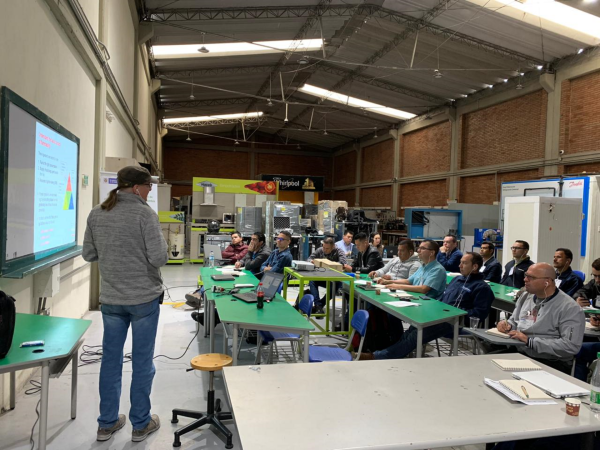“Colombia Domestic Refrigeration” project can address identified needs of government and refrigerator producers, Mid-term Evaluation and Learning Exercise finds

The “Colombia Domestic Refrigeration” NAMA Support Project (NSP) aims to fully transform the domestic refrigeration sector in the country through the introduction of climate-friendly and energy-efficient refrigerators. The project will take on the production and market introduction of the green fridges (i.e., fluorinated gas free and energy efficient) in the country and the appropriate end-of-life management of old fridges.
During the period of October – December 2021, AMBERO and Oxford Policy Management undertook a Mid-term ELE on the progress of the project.
Below are some of the key findings of the ELE:
- The project was found to be highly relevant in addressing identified needs of the Colombian government and refrigerator producers. The NSP, with its greenhouse gas (GHG) reduction contributions, is included among the actions contained in Colombia’s 2020 revision to the Nationally Determined Contributions (NDCs) submitted to the United Nations Framework Convention on Climate Change (UNFCCC).
- The NSP has already demonstrated signals of catalytic effect. The NSP contributed to the refrigerator producers’ ability to design and market R-600a-based and energy-efficient fridges. The support provided by the NSP to the preparation and discussion of regulation updates was also instrumental, as it operated as a neutral stakeholder during consultation processes.
- Regulatory reforms, training, equipment and technical assistance supported by the NSP are unlikely to relapse. However, government or international funding will likely be required in the near future to continue the substitution efforts.
The following lessons learnt and recommendations were derived by the evaluators of the ELE for future NSPs in the refrigeration sector:
- The interest and commitment of the private sector stakeholders by appropriate incentives, when formulating and executing similar intervention in the sector, should be developed and maintained.
- Some flexibility of the financial instruments as incentives to catalyse transformational change should be considered at the design stage of the NSP.
- Other NSPs in the sector should be engaged in discussions about financial instruments and ways to improve them throughout implementation.
- Leveraging all the institutional and technical experience and capabilities generated by this project to formulate new NSPs for transforming sectors adjacent to domestic refrigeration should be considered.
Following the main findings and recommendations of the ELE, the TSU and NSP have compiled a management response to address the key points that were raised. The full mid-term ELE report is available in the Knowlegde & Learning Hub.
The NAMA Facility supports NAMA Support Projects (NSPs) that drive sector-wide shifts toward sustainable, irreversible, carbon-neutral pathways in developing countries and emerging economies. All NSPs with an overall duration of more than three years are subject to a mid-term and to a final evaluation and learning exercise (ELE). These ELEs are part of the NAMA Facility’s working approach to catalyse transformational change through incremental monitoring processes that allow fearless learning.
The Technical Support Unit (TSU) has commissioned AMBERO and Oxford Policy Management to conduct the ELEs. The exercise is based on a theoretical framework which involves a document review, participatory workshops and stakeholder interviews to collect evidence about NSPs’ results and lessons. These elements are then analysed using a theory-based approach centered on the use of contribution analysis and reinforced by elements of process tracing. The ELEs seek to address the following questions:
– Has the NSP achieved its results?
– Has the NSP started to trigger transformational change?
– What was learnt from the NSP so far?
